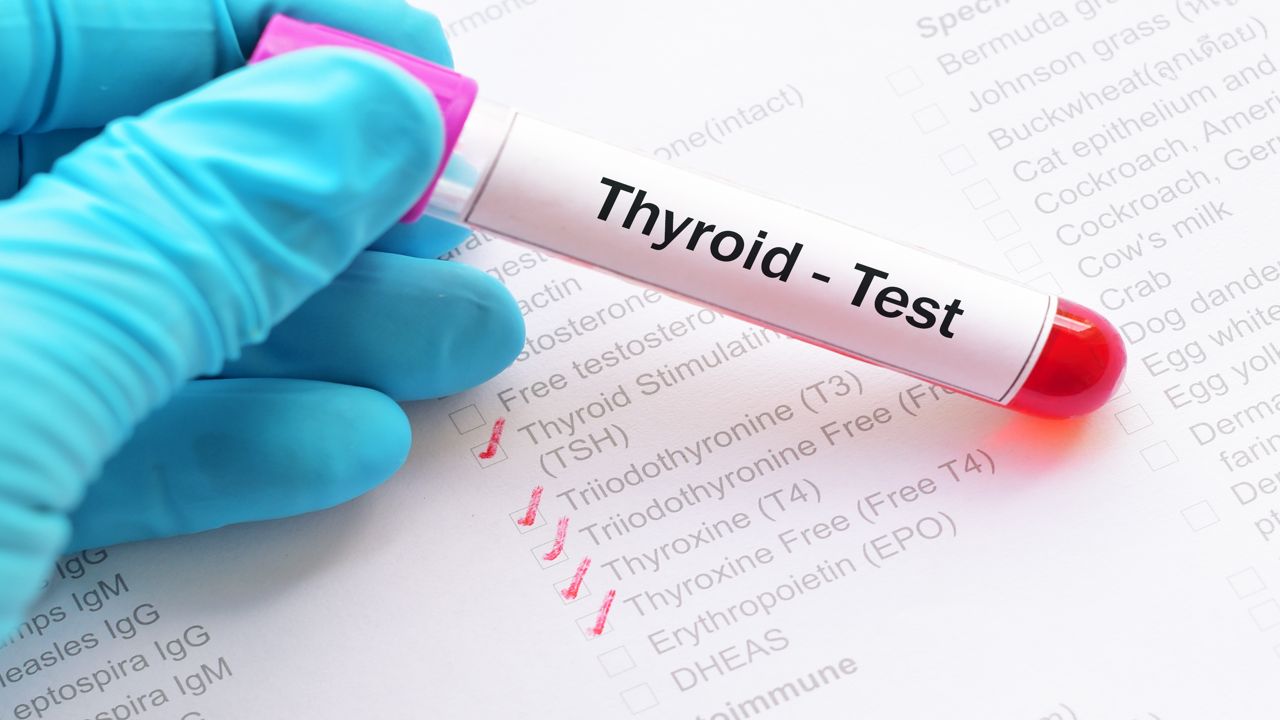
What are normal thyroid levels in women and what happens when there is an imbalance in the thyroid levels of the body? Don’t worry. Your questions find refuge here in the following sections of the article.
Thyroid is a gland that is situated below the voice box, also called the larynx. In colloquial terms, the larynx is referred to as the Adam’s Apple. The thyroid gland is a very essential component in the endocrine system, consisting two lobe-like structures situated on both sides of the trachea. The two lobes are joined by the isthmus, also called the thyroid tissue.
What Is the Function of the Thyroid Gland
The predominant function of the thyroid gland is to successively regulate the iodine content in our body and convert the iodine garnered from the food consumed, into two forms of thyroid hormones. Then two main thyroid hormones are triiodothyronine (T3) and thyroxine (T4). Thyroxine is the most important and dominant hormone that is released however the hormone needs to be converted into the triiodothyronine, as the thyroxine is inactive in nature. T3 and T4 are thyroid hormones that are a dominant requirement in order to maintain the metabolic levels of the body, conforming to the necessary calcium levels in the body and regulating the temperature of the body. The master gland called the pituitary gland is the controller of the thyroid gland. The pituitary gland is itself regulated by the hypothalamus which is also a part of the brain.
What Are the Normal Thyroid Levels in Women
The normal thyroid levels in women must range between 0.5 to 4.5 mI/UL. The abbreviation mI/UL can be segregated as milli-international units per liter. A thyroid level that is detected to have deviated from the set normal range is referred to as hyperthyroidism and hypothyroidism.
It is also imperative to be well informed about the normal thyroid levels while pregnant. Discrepancies in thyroid levels during pregnancy may result in complications for the mother and the child. It is likely that women who rank higher on the TSH level may endure a preterm delivery. The risks of enduring a preterm childbirth may increase when the woman is tested positive for autoimmune thyroid disease. This may occur, even when the thyroid levels are tested and found to occupy the normalcy bracket. However, the normal thyroid level during gravidity is distinguished in accordance to the trimesters.
| Trimester | Normal Range |
| 1st Trimester | 0.25-2.96 |
| 2nd Trimester | 0.45-2.94 |
| 3rd Trimester | 0.42-2.76 |
Disorders Related to Thyroid-level Imbalance
The two thyroid gland disorders are referred to as Hyperthyroidism and Hypothyroidism. Hyperthyroidism is a condition that results in the escalation in the levels of production of the thyroid hormone. Hypothyroidism, on then other hand is a condition in which the thyroid-producing hormone is produced lesser than the level required in the body.
Symptoms of Hyperthyroidism
The symptoms of hyperthyroidism are as follows:
- In Hyperthyroidism the metabolism of the body is affected. Thus the metabolic rate of the individual increases.
- The individual may start to lose weight even though he tries hard to increase his appetite. As the metabolic levels has escalated, he is at a greater risk of losing tremendous amount of weight. However, in certain cases there are individuals who gain weight due to a vast change that they experience in their eating habits.
- They experience fatigue and feel stressed, too soon.
- They cannot have a sound sleep and a majority of cases suffer from insomnia. The only thing that runs in their mind is to go for a nap. By doing this, they feel, they would feel better. However, the condition remains the same.
- They have frequent bouts of palpitations and feel anxious, getting irritated too soon.
- When the condition remains unchecked for a long time, the symptoms may become all the more serious, characterized by chest pain and muscle weakness.
- People who have passed their middle age may experience changes in their appetite and may feel depressed. The other symptoms are absent and are thus not experienced by the individual.
Symptoms of Hypothyroidism
- In hypothyroidism, the body’s metabolic rate decreases and is at a higher risk of gaining weight.
- The individual may feel tired and weak.
- She may also have sleepless nights, leading to insomnia.
- The immunity system may also suffer and become weak with high susceptibility of countering cold.
- The skin becomes dry and in certain cases the skin develops a yellowish tinge.
- The nails are prone to breakage and hair is bound to fall.
- The digestive system slows down leading to constipation.
- Palpitation and the cholesterol levels rising is another symptom of hypothyroidism.
- In women when the thyroid levels become low, the most evident result is the menstrual cycles becoming irregular. This leads to infertility.
- When a woman is pregnant, the low thyroid levels may cause miscarriage.
- Puffiness around the eyes is also an evident symptom of hypothyroidism.
This was all about the normal levels of thyroid in women and the consequences if any deviation in the level occurs. Administering of antithyroid drugs or related medication, or resorting to a surgery to remove the thyroid gland or the nodule are certain modes of treatment to be followed.
